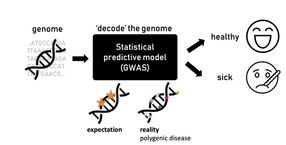Out of REACH
New legislation threatens medicines
Europe's proposed new chemicals legislation, REACH, could disrupt the supply of important medicines. David Vosvenieks, REACH issue manager at AstraZeneca (AZ), told chemistry & Industry that two companies supplying intermediates required for two AZ drugs - one of them an anticancer therapy - have already warned AZ that they may no longer be able to guarantee supply under the new rules. Pfizer and GlaxoSmithKline have also said they are in discussions with suppliers.
According to the Society of the Chemical Industry (SCI), REACH, which could come into force next April, poses a serious threat to supplies of large numbers of intermediates and raw materials used in drug manufacture. 'While the possibility of this happening has always been on our radar, this has come as a rude awakening,' Vosvenieks said.
A change in supplier would mean re-submitting a drug for evaluation by the regulatory authorities. And because a lot of current manufacture is driven by demand, many drug companies would not have stockpiles to cover the re-authorisation period, which according to the UK Medicines and Healthcare products Regulatory Authority could take up to two months. In the worst-case scenario this could mean a delay with restarting supply.
A spokesman for Pfizer admitted the company was also in discussions with suppliers over REACH, but declined to say whether any particular products were affected. GSK is also reviewing suppliers, but a spokesman said that they had not come up against any problems to date.
'Finding a new supplier would be very much a last resort, and would potentially bring extra costs,' Vosvenieks said. Pharmaceutical active ingredients (APIs) are largely exempt from REACH, but many of the solvents and intermediates involved in the manufacture of the final drug formulation will not be. The main chemicals affected will be hazardous chemicals such as carcinogens or mutagens. 'Such compounds may be used in 5 -10% of drug syntheses as a very rough estimate,' according to Vosvenieks.
Most read news
Organizations
Other news from the department business & finance

Get the analytics and lab tech industry in your inbox
From now on, don't miss a thing: Our newsletter for analytics and lab technology brings you up to date every Tuesday. The latest industry news, product highlights and innovations - compact and easy to understand in your inbox. Researched by us so you don't have to.






























































